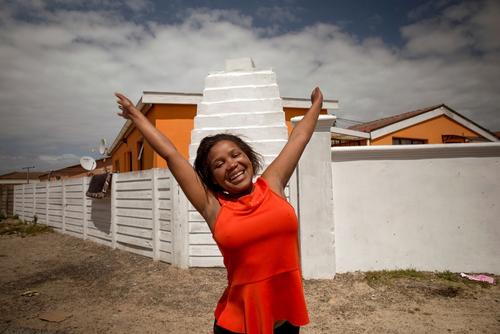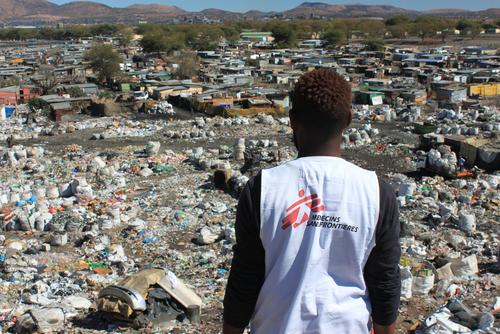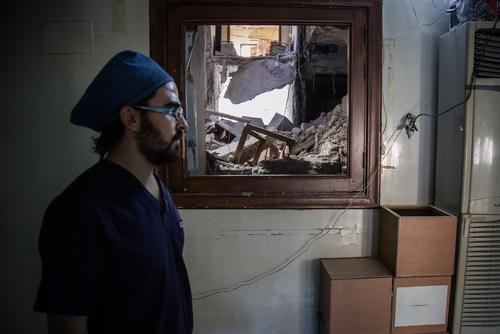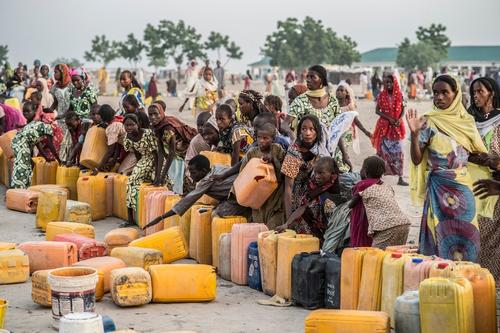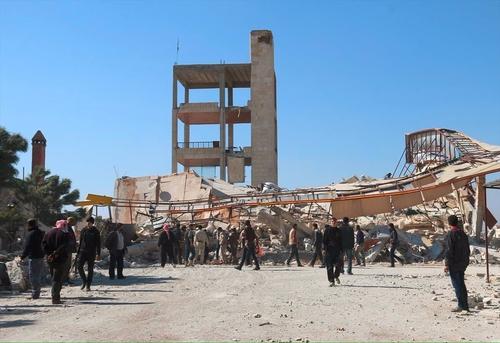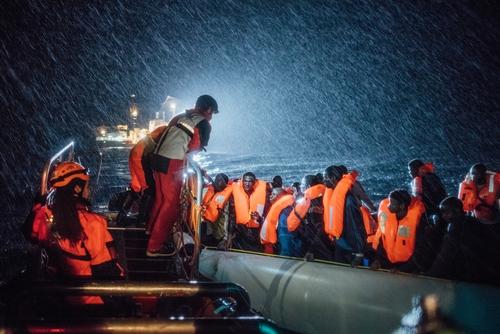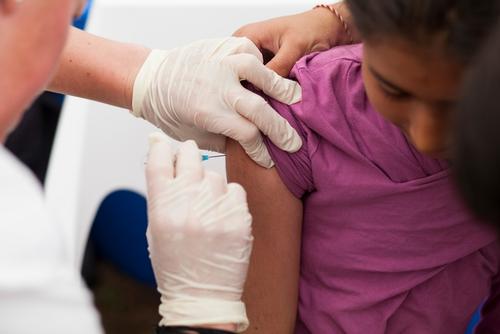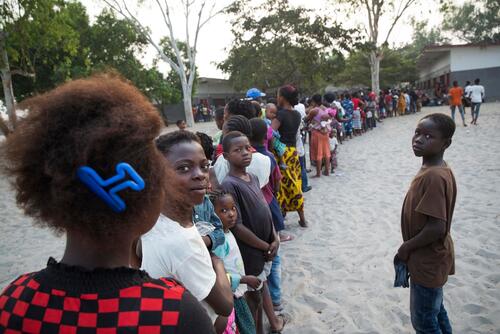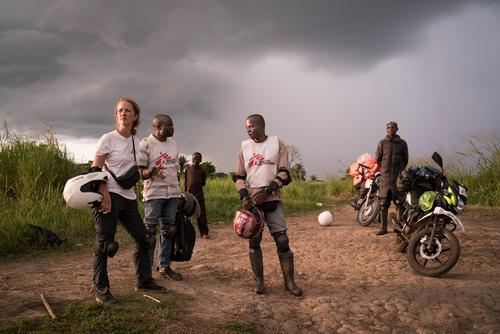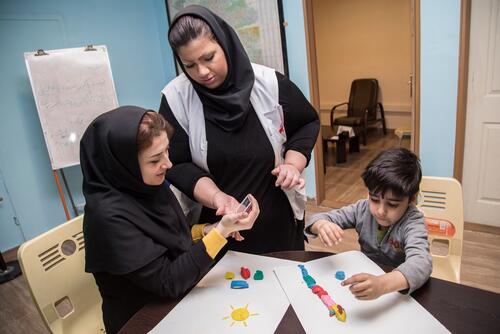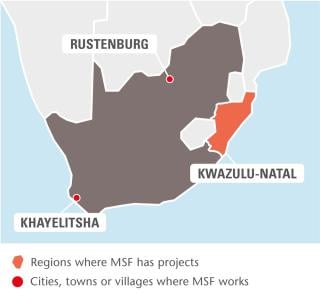
12,700
12,7
680
68
290
29
This was a year of political and economic upheaval in South Africa, with the leading political party losing control of several major cities following municipal elections in August. South Africans continued to make strident and often violent demands for better public services and accountable leaders.
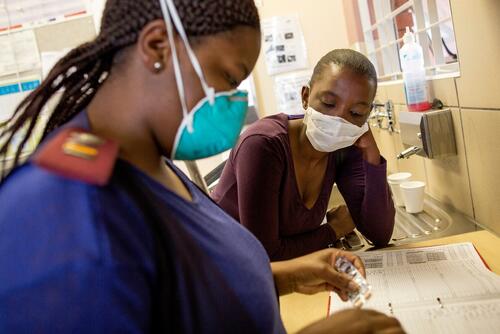
KwaZulu-Natal province
The MSF HIV/tuberculosis (TB) project in uThungulu district, which covers a population of 114,000, is still aiming to be the first site in South Africa to meet the ambitious UNAIDS 90-90-90 targets.Globally endorsed HIV treatment targets that aim, by 2020, for more than 90 per cent of people living with HIV to be aware of their status; 90 per cent of those diagnosed to be initiated on antiretroviral (ARV) treatment; and 90 per cent of those on ARVs to achieve viral suppression. A report, Bending the Curves of the HIV/TB Epidemic in KwaZulu-Natal, outlined the project’s community-oriented approach to increasing integrated HIV testing and TB screening as well as access and adherence to HIV treatment, with the aim of influencing the South African government’s future strategy for meeting 90-90-90 treatment targets nationally. In 2016, 56,029 individuals were tested, 2370 male circumcisions were supported and 1.5 million condoms were distributed.
Khayelitsha
The Khayelitsha project near Cape Town continues to develop and implement treatment regimens for MDR-TB and innovative models of care for patients living with HIV and TB.
In 2016, the team focused on developing models of care to support specific at-risk groups, such as pregnant women and their infants, adolescents and men. Thirteen postnatal ‘Moms and Tots’ clubs were established in partnership with the city of Cape Town and NGO mothers2mothers, enabling women to access one-stop services for HIV and other health issues for both themselves and their babies, thereby improving adherence to treatment.
Throughout 2016, MSF fought for access to new TB drugs for eligible patients, both in Khayelitsha and nationally. South Africa now has national access to the new TB drug, bedaquiline, and in Khayelitsha, MSF has the largest national cohort on another promising new medication, delamanid, with 61 new patients initiated on treatment this year. MSF also supports the Western Cape Department of Health to offer ‘strengthened treatment’ regimens to drug-resistant TB patients.
Rustenburg
MSF continued to support the Department of Health in North West province to expand access to care for victims of sexual violence in Rustenburg, in South Africa’s platinum mining belt.
The results of an MSF survey of 800 Rustenburg women between the ages of 18 and 49, which were published in 2016 in a hard-hitting report, Untreated Violence show that one in four women in Bojanala district have been raped in their lifetime. Half have experienced some form of sexual or intimate partner violence, but 95 per cent of women had never told a health facility about their assault.
MSF supports three Kgomotso care centres, primary healthcare facilities that provide an essential package of medical, legal and psychosocial care to victims of sexual violence, with the aim of preventing illness and reducing the suffering associated with rape. The package includes a forensic examination, post-exposure prophylaxis (PEP) to prevent HIV and other sexually transmitted infections, and psychosocial support and counselling. In 2016, 290 victims of sexual violence were treated, and all of those eligible received essential medication and/or psychological care.
In addition to working with the provincial health authorities in Rustenburg, MSF continued to advocate nationally for increased access to services at healthcare facilities for victims of sexual violence.
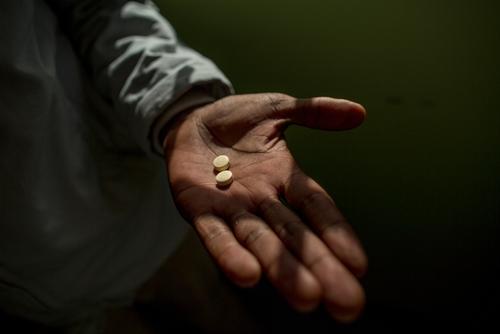
Fix the Patent Laws
Launched in 2011 with MSF as a founding member, the Fix the Patent Laws coalition consists of 32 patient groups and organisations that campaign for reform of South Africa’s intellectual property laws to address obstacles to national access to affordable medicines. Following years of pressure, the South African Department of Trade and Industry released a new intellectual policy consultative framework in July 2016. In September, the coalition published a report entitled Patent barriers to medicine access in South Africa, comprehensively making the case for patent law reform in the country. The coalition continues to exert pressure on the government to expedite legislative reform.
Stop Stockouts
The Stop Stockouts Project is a civil society consortium supported by MSF and five other organisations, which monitors availability of essential drugs in clinics across the country and pushes for the rapid resolution of stockouts and shortages. Communities are trained on how to report stockouts and national health authorities are encouraged and if needed, pressured, to advocate the reform of supply chains. In 2016, the project received 605 reports of stockouts through its national hotline, and trained 3,454 patients and community activists. It also secured a three-year grant from the European Union to continue its current operations.
224
224
7.6 M
7.6M
1999
1999
Find us online
Patient story
Sinethemba Kuse – 17, from Khayelitsha, was one of the first multidrug-resistant TB patients initiated on delamanid in South Africa.
“Just imagine being told that you have MDR-TB just before Christmas. The same day the doctor gave me tablets and I also got an injection. The injections were painful. I was scared of the needle because I had to be injected every day. Sometimes I would bleed and I even got lumps. I swallowed a lot of tablets, so I would vomit or be dizzy. Later, we were told about a new medication that is available in Khayelitsha that not a lot of people are lucky enough to have. Dr Jenny [Hughes] of MSF explained more about this new drug called delamanid. In February 2015, I started taking it. All I can say is that there is hope. I trusted it with my life and it worked. My gran and everybody started noticing the difference – even my gran’s church friends saw the change.”
Learn More